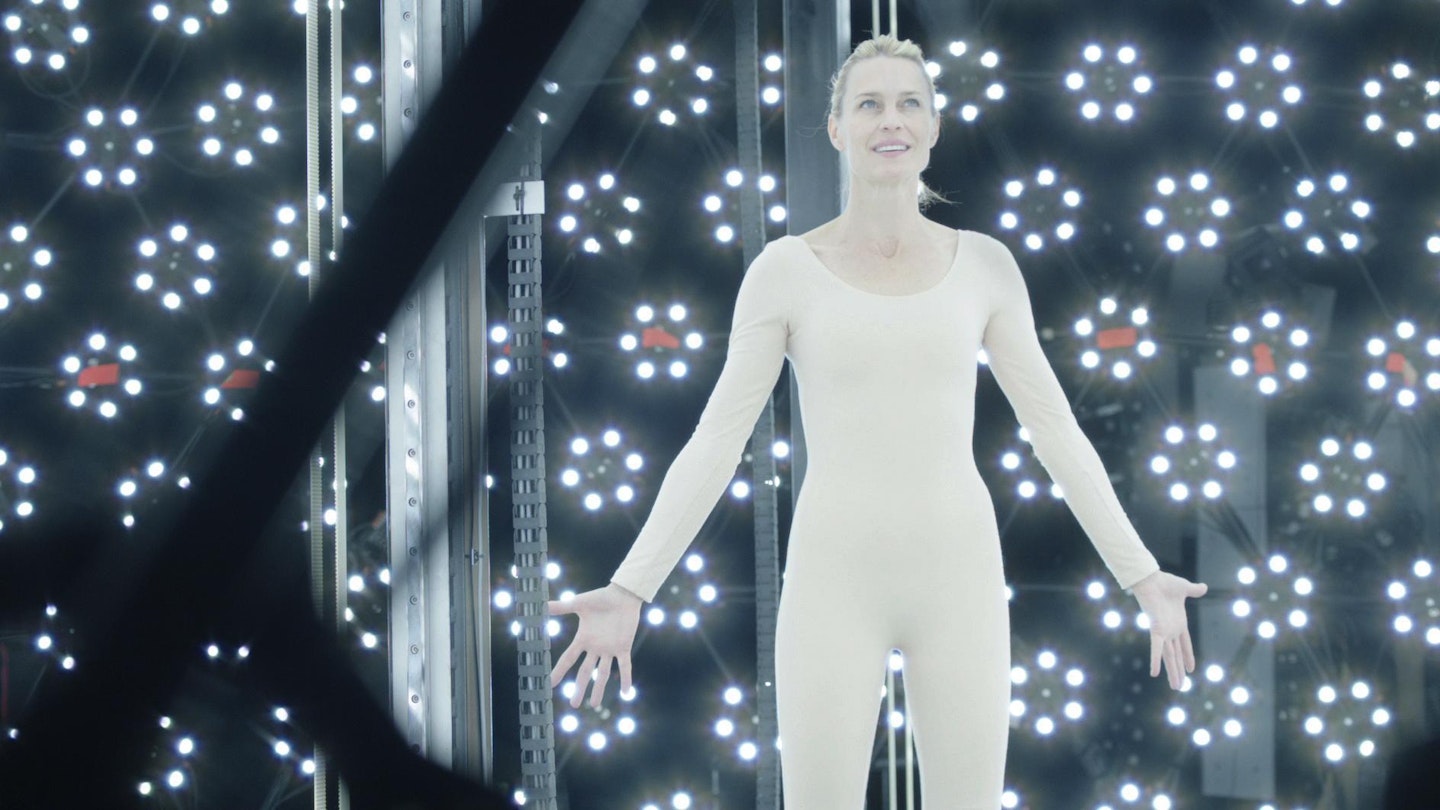Ari Folman's Waltz With Bashir was an impressive and triumphant fusion of animation and documentary, exploring the realities of war (specifically the 1982 Israeli invasion of Lebanon) in a novel yet appropriately surrealistic style. His follow-up is a similarly intriguing but less successful blend of real-world elements and animated fantasy, which is at once more literal (bisecting its story into distinct live-action and hand-drawn animated chunks, divided by a 20-year leap in the plot) and more perplexingly psychedelic.
Despite the presence of Robin Wright playing herself, when The Congress unmoors itself from ‘reality’, it really does cut away the anchor. Drawing inspiration from Polish sci-fi writer Stanislaw Lem’s novel The Futurological Congress, to which this story bears only a passing resemblance, Folman sends a future version of his lead actress into a Fleischer brothers-style animated cosmos dominated by a film studio-turned-megaconglomerate that’s hawking identity-morphing milkshakes which allow its cartoonish punters to become their favourite characters. So populating its perpetually undulating dreamscape you’ll spot caricatures of Clint Eastwood’s Man With No Name, Liz Taylor’s Cleo, Michael Jackson, Elizabeth I and David Bowie. Tom Cruise (not voiced by Tom Cruise) even pops up at one point, grey-haired and with glow-in-the-dark teeth, to announce to Wright that he’s been “with Unicef handing out food packages to hungry kids in Africa”.
As well as being strangely satirical, the second-half world of The Congress is also a bright, teeming celebration of the bizarre, funnelling Ralph Bakshi’s Cool World, Yellow Submarine (the banana-coloured submersible even appearing in the background of one scene), Who Framed Roger Rabbit’s Toon Town and, at points, the airship-filled imaginaria of Hayao Miyazaki. Skyscrapers flit by on hummingbird wings, cockroaches play poker in the shade of tongue-like flowers, penis-shaped fish frolic in tanks. And through it all glides Wright, grey-haired
and with large, sad eyes, who comments of her own animated form, “I look like Cinderella on heroin.” Later she will have a cartoon sex scene with her own animator (voiced by Jon Hamm) to a glorious backdrop of nuclear explosions. It is, as your mum might say, A Bit Different.
Although what Folman’s precise point is remains colourfully obfuscated. The Congress has its otherworldly acid-trip delights, but the sci-fi animated segment feels only tenuously connected to the modern-day, live-action first half, which is where the film is actually at its strongest. This is because Wright is such a powerful presence, fearlessly addressing the film industry’s attitudes towards women her age. At one point, we see her stop in a corridor, captivated by a film poster. The look on her face is one of someone taking in a photo of a lost loved-one; the image she’s seeing is of herself as Buttercup in The Princess Bride, an airbrushed vision of youthful fairy-tale beauty.
And the film opens tight in on her face, weary and teary, as her off-screen agent (played by Harvey Keitel) berates her: “Lousy choices, that’s your whole story…” Later she’s pilloried by the studio head (played by Danny Huston), who informs her, “I need Buttercup from Princess Bride, I need Jenny from Forrest Gump. I don’t need you.” What he wants, in fact, is to own her image so he can create a digital avatar that will appear in whatever film he chooses and, more importantly, never age.
There is undoubtedly an interesting theme here about where the performer ends and the intellectual property begins, although to some degree its apparent concern about ‘synthespians’ does feel a little quaint. After all, hasn’t performance-capture already taken us past such entertainment technofear?

